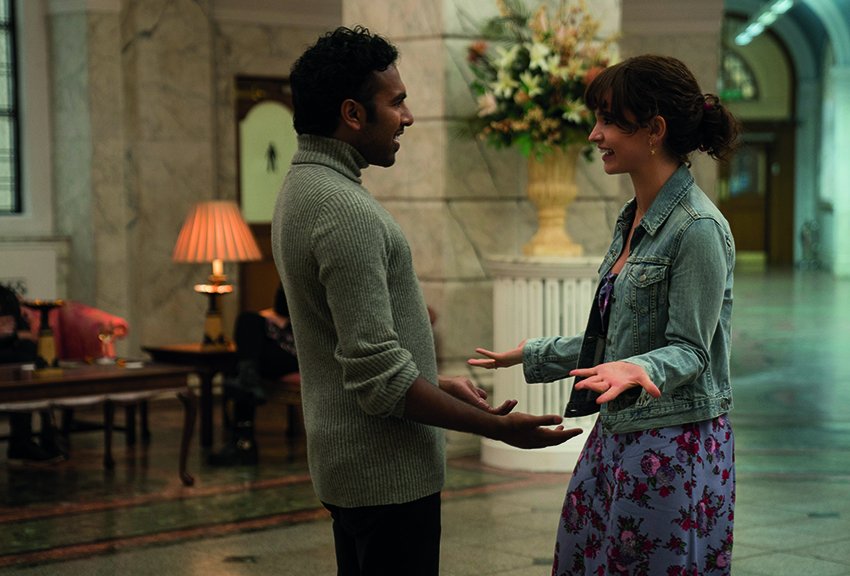Movies - Yesterday : Let's talk with the cast
By Mulder, 01 june 2019
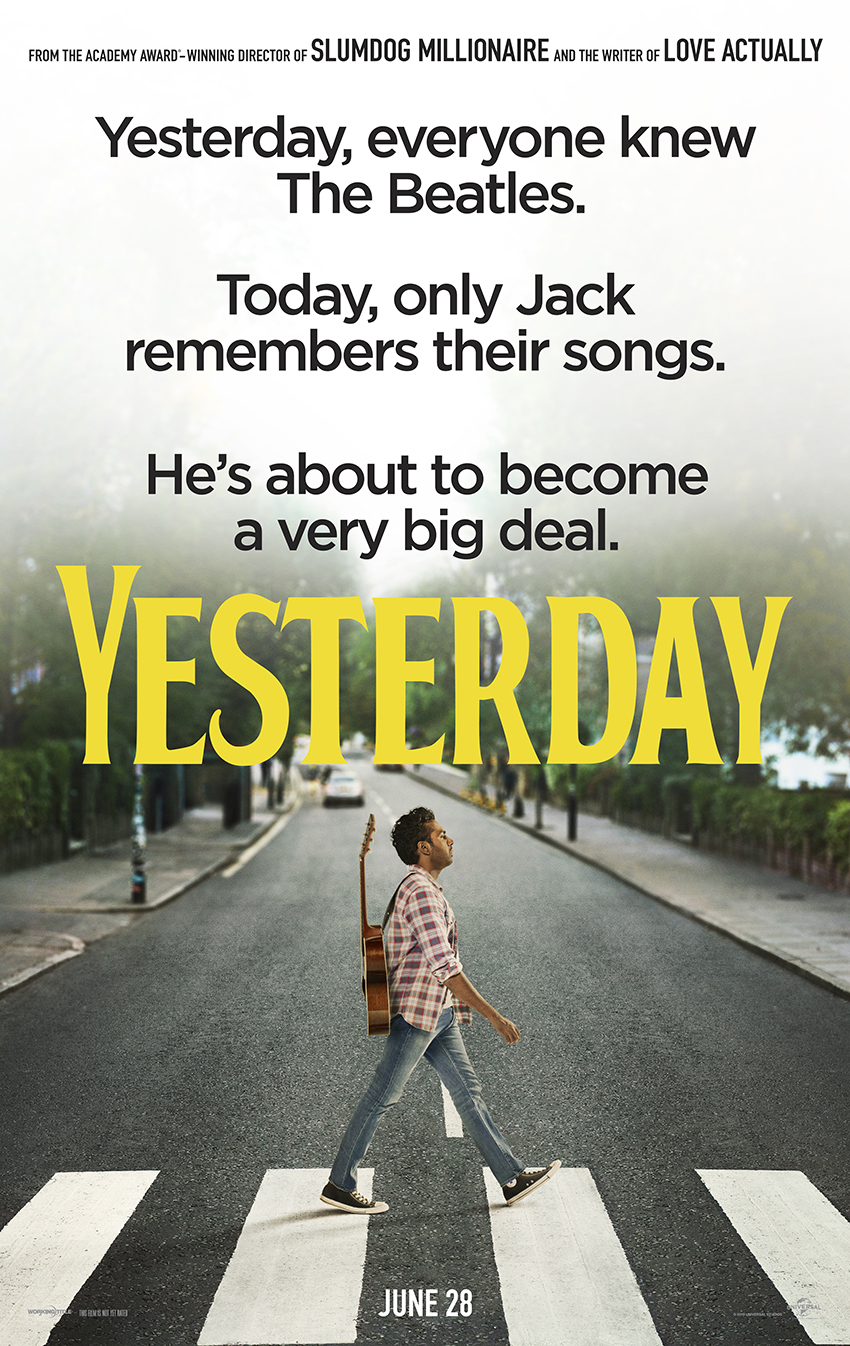
Yesterday is a 2019 British comedy film directed by Danny Boyle and written by Richard Curtis, from a story by Jack Barth and Curtis. The film stars Himesh Patel, Lily James, Kate McKinnon, and Ed Sheeran. Featuring new versions of The Beatles’ most beloved hits, Yesterday is produced by Working Title’s Tim Bevan and Eric Fellner (Love Actually, About A Boy, the Bridget Jones series) alongside Matthew James Wilkinson and Bernie Bellew. Curtis and Boyle also produce. Nick Angel, Lee Brazier and Liza Chasin serve as executive producers. The film had its world premiere at the Tribeca Film Festival on 4 May 2019, and will be released 28 June 2019 by Universal Pictures.
It was only natural that Working Title Films would reach out to collaborate with screenwriter Richard Curtis on a passion project that had been bubbling up through the studio’s development channels. Producer Tim Bevan has known Curtis for 30 years, and—from the films of the Bridget Jones series to Notting Hill, Love Actually and About a Boy—every film Curtis has written has been produced by the company that’s synonymous with British cinema. “One of our producers came to me with Jack Barth’s idea, a story about a musician who remembers The Beatles’ music in a world where no one else does,” Richard Curtis says. “I loved the idea, and at that point told them I didn’t want to read the script…as I would like a crack at it myself. I went away and wrote a film based on that simple-but-brilliant idea. So, whilst the extraordinary premise is Jack’s, the script and shape of the story are mine.”
Although Curtis is known for sometimes helming scripts he’s crafted, on this occasion he abstained. “I was never going to direct it,” he says. “I didn’t even think about who should because first you’ve got to write a script worth anyone directing. However, once I had finished the script, Danny Boyle was the first person I asked.” Curtis and Boyle knew each other a bit, as the writer had helped Boyle with his opening ceremony for the 2012 London Olympics, being called in to create a Chariots of Fire spoof with Rowan Atkinson. “We did a little thing on the Olympics where I worked with Rowan, creating a performance for Mr. Bean,” Curtis says. “It was great that Danny wanted something funny in the middle of the opening ceremony, because that’s not a very usual thing.”
As the joke was about cheating—a daring move for the inaugural evening of the world’s biggest sporting event—it was a break from tradition in more ways than one. Still, it’s this approach that defines Boyle as an artist. “Danny wants more out of a scene at every point, and that’s exciting,” Curtis says. “He’s an ecstatic filmmaker. He kept talking about how Jürgen Klopp manages the Liverpool football team with something called ‘Gegenpressing,’ which is when you squeeze as much into the attack as you possibly can, and he says that’s what he always wants to do.”
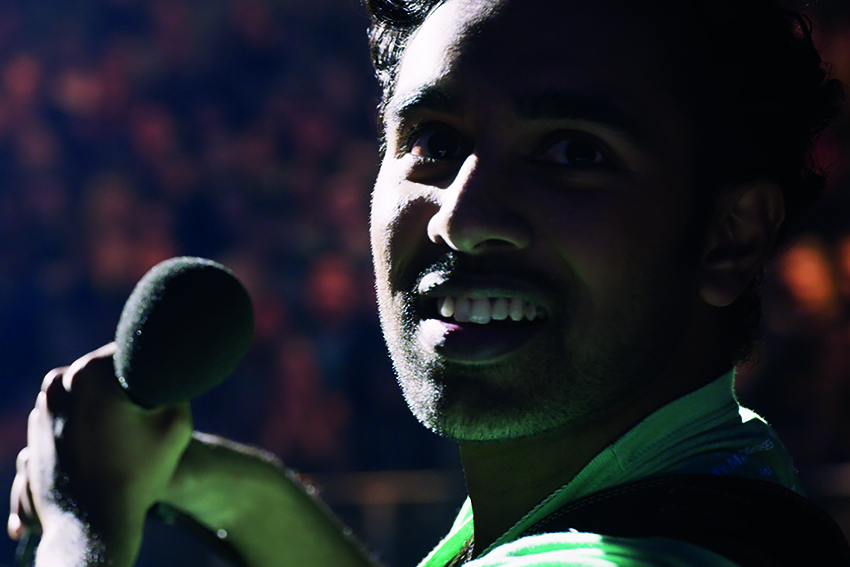
So, six years after that Olympic triumph, Curtis sent Boyle his draft of Yesterday, but he wasn’t particularly optimistic that Boyle would say yes. “I thought it was unlikely at the time,” Curtis says, both because of Boyle’s busy schedule and the nature of the story. “In a way, Four Weddings is the anti-Trainspotting, and Trainspotting is the anti-Four Weddings.” Still, both films embrace Britishness and have euphoric cinematic, uplifting endings. “It cuts both ways,” Curtis says. “It’s expected and unexpected.” To the delight of those involved, Boyle agreed to direct. “This is not your typical film story,” Bevan says. “Getting to that stage is usually very difficult, but in this case, it was pretty easy.”
As Boyle remembers it, Curtis had sent him the script without revealing much about it. “I read it through in one sitting and emailed straight back with a phrase I love that Coleridge used about Wordsworth,” Boyle says. “I wrote, ‘This is unborrowed genius.’ Richard said, ‘Well it’s not actually. It’s based on a story that’s already been written, and I’ve rewritten it.’ Anyway, it was a wonderful surprise and a delight to see: this simple idea of everybody forgetting The Beatles, apart from one struggling singer-songwriter from Suffolk.”
In the Boyle-Curtis partnership, Bevan saw connections between these seemingly disparate artists. “The interesting thing about Richard and Danny is that they both emerged in the late ’80s/early ’90s with Trainspotting and Four Weddings,” Bevan says. “They both had films that were British and very successful, and both made the decision to stay in the U.K. to make their films and not head to Hollywood. They understood that a cultural specificity in their work was an important part of it, and that it’s easier to make good work when you are dealing out of your own culture.
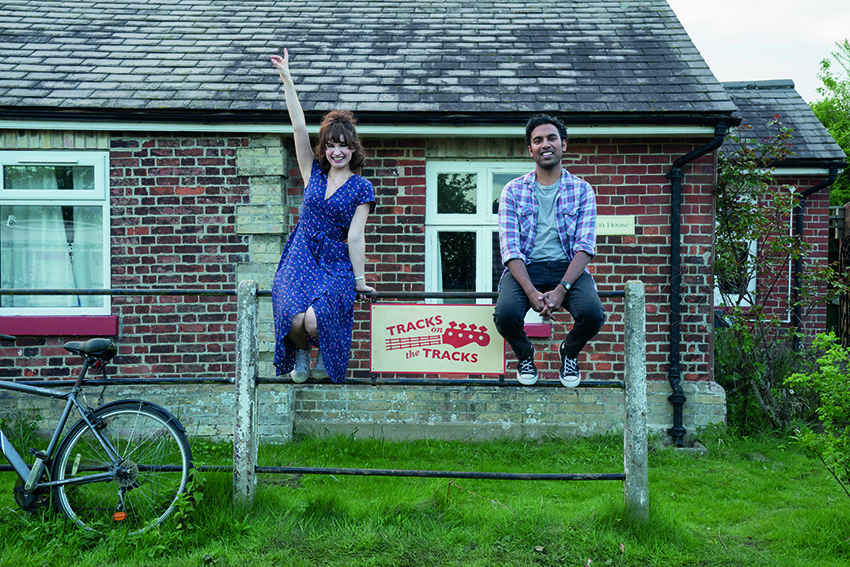
“They both did these two things,” Bevan continues. “Both had lots of success and turned around the whole perception of modern British cinema because they stayed in Britain and made British movies. Those British movies went out around the world and did mega-business. There’s a logic that at some point those two would work together and a logic, too, in that both love music—particularly pop music. The film they might work together on would be about pop music. Between them and the iconic songs of The Beatles and Working Title, another British brand, is that you have an interesting combination of British filmmaking and creative talent.” Still, before Boyle would put his name to the romantic comedy, he had to be sure he would have complete freedom to make the film he wanted to make. “When Danny came ’round to see us, he asked if he could audition for the film, which of course is an absurd idea,” Curtis says. “But what he was doing was checking whether the ideas he felt strongly about were acceptable to us. If they weren’t, he wouldn’t do it. He pitched the film he wanted to make right back at us.”
Bevan has long been impressed by how singular Boyle is as a director. “He’s a person who says, ‘If somebody else can direct this film, there’s no point in getting me to do it,’” Bevan says. “He gets his DNA into it, and that’s a good thing. He also surrounds himself with non-divas. All the heads of department and his producer, Bernard Bellew, are here to do the job. They love the job, and they love him. It’s a very democratic set. It’s the way things should be done and, sadly, are not done often enough. It’s extremely refreshing. Danny clearly loves making movies and getting into the detail with his heads of department.”
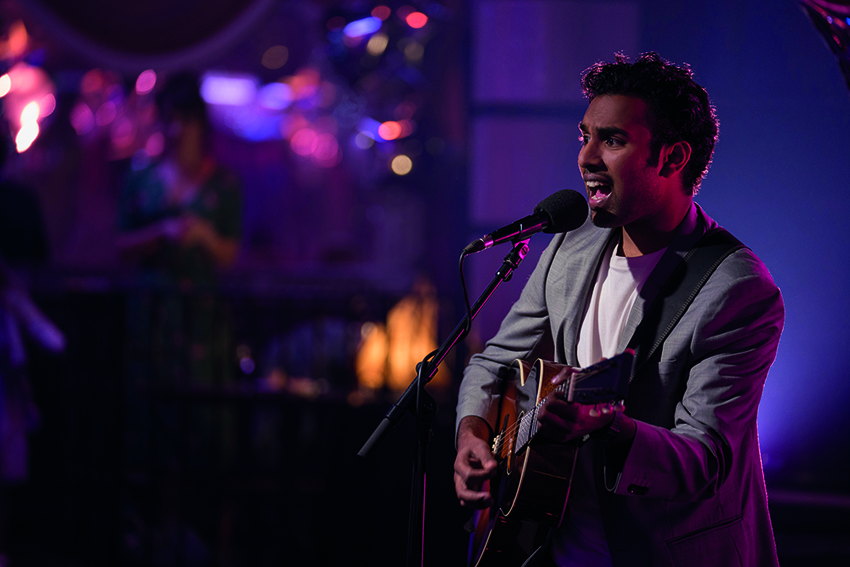
Once Boyle was onboard, he asked Curtis to change about a quarter of his working script, and a percentage of what Curtis had written was altered completely. “Writing is always a process of change,” Curtis says. “By the time it’s edited you end up cutting 25 pages completely, so I’m not the slightest bit sensitive about it. It was all for the better. Jack is telling a lie throughout most of the story, and how do you express that? I kept using ‘he feels very guilty,’ and Danny said this is quite hard to do; there’s a limit to how many times you can cut to a bloke looking a bit guilty! He had this idea about putting in a nightmare where all his worst fears come true, so there’s now a scene where that visualizes Jack’s guilt, rather than just showing him feeling a bit guilty. That’s a big-old proper scene. It was things like that, taking the film and making it more visual, more exciting, better.”
Boyle loved collaborating with Curtis as they finalized the shape of the film. “I’ve always regarded Richard as Britain’s poet laureate of romance and comedy,” Boyle says. “I’m in awe of his devotion to that intersection of romance and comedy. I made a couple of films early on, Shallow Grave and Trainspotting, that were very low-budget, did very well and had everybody hammering on our door saying, ‘What are you going to do next? Do this. Do this!’ I went off and made what I thought was a romantic comedy, A Life Less Ordinary, which I’m very fond of. But when we came back after we’d shot it, before we’d even edited it, I remember reading Richard’s script for Notting Hill. I thought ‘Now, that’s a romantic comedy in its purest sense.’ It’s been great to be part of the process of working on a script like this from him, and to deliver a fullhearted romance that truly believes in love. Belief in The Beatles is a belief in love. Richard certainly has that.”
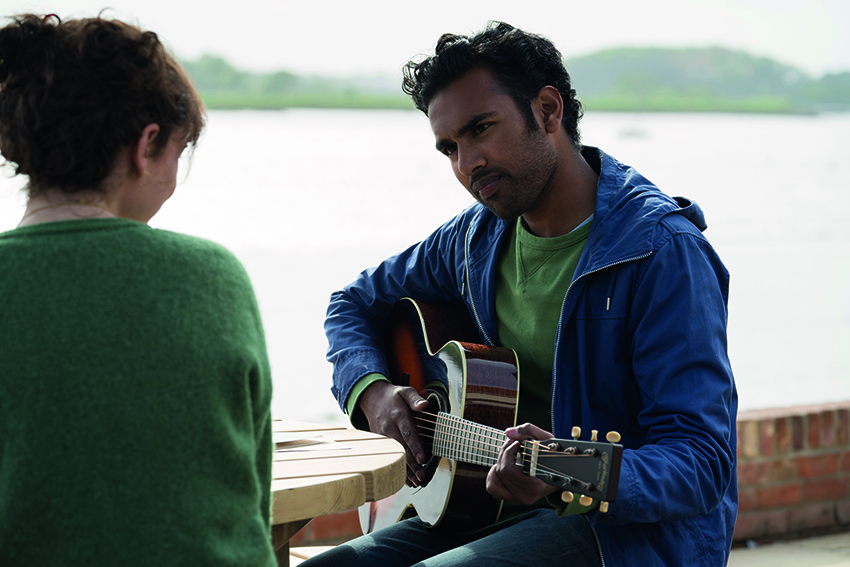
With Boyle in the director’s chair, it was now time to find a home for Yesterday: a studio that would not only support the filmmakers on their journey but one that trusted their instincts. On paper, the film, without stars with proven box-office records, posed big potential risks for a major studio. When Curtis and Bevan pitched the idea to Universal, it raised eyebrows among the studio executives. “It’s a pretty wacko idea,” Bevan says. But the executives were willing to take the leap because of the filmmakers involved. “They said that if anyone could pull this off, Richard and Danny could. When dealing with studios, or American industry backing, the one thing they understand is the scarcity of good directors. If you get a renowned director, all the other issues tend to go away.”
Boyle was thrilled that the film had found the right home. “Being part of The Working Title/Universal setup, which is the only production outfit we have in Britain really, gave us a sense of security as we planned and went into the film,” Boyle says. “We knew it was safe, was going to be financed well and we’d be left to make the film we wanted. It’s been a delightful process right the way through.”
For Boyle, Curtis and the other filmmakers, the primary and constant goal with Yesterday was to fuse the emotional truth of The Beatles’ music with a love story worthy of their songs. “Somebody said something about the number of times the word ‘love’ appears in The Beatles’ songs compared to the Bible,” Boyle says. “By some extraordinary margin, The Beatles win hands down. I hope that’s what people will take out of this film: that it’s a love story. So where better to go for a love story than The Beatles? A dual love story. A love story to this music, which is a part of world culture now, and a beautiful unexpected love story that runs alongside it that benefits from the story arc that takes you on such a roller-coaster journey.”
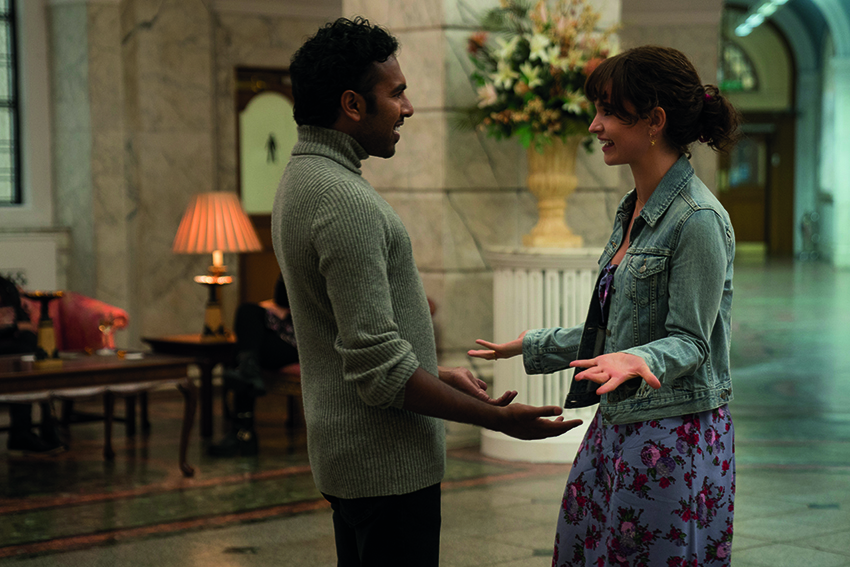
It is also a film about limitless possibilities, the idea that, even when something has been lost, you can regain it. For Boyle, The Beatles’ music represents the fundamental moment where the world came out of a half century of world war and was reborn. “It shifted the world on its axis when the people were given the power of their instincts, about art, love and poetry,” Boyle says. “All those things that can be in those songs fundamentally changed the world to the force of movement…toward the teenager and the glory of pop sensibility. People decided to live. All because of these four guys.”
Itw Danny Boyle (Director)
Itw Matthew James Wilkinson (Producer)
Itw Tim Bevan (Producer)
Itw Ed Sheeran and Richard Curtis (Screenwriter)
Itw Richard Curtis (Screenwriter)
Itw Ed Sheeran (himself)
Itw Himesh Patel (Jack Malik)
Itw Lily James (Ellie Appleton)
Itw Joel Fry (Ricky)
Itw Kate McKinnon (Debra Hammer)
Itw Lamorne Morris (Head of Marketing)

Synopsis :
Yesterday, everyone knew The Beatles. Today, only Jack remembers their songs. He’s about to become a very big deal. From Academy Award®-winning director Danny Boyle (Slumdog Millionaire, Trainspotting, 28 Days Later) and Richard Curtis, the Oscar-nominated screenwriter of Four Weddings and a Funeral, Love Actually and Notting Hill, comes a rock-n-roll comedy about music, dreams, friendship, and the long and winding road that leads to the love of your life. Jack Malik (Himesh Patel, BBC’s Eastenders) is a struggling singer-songwriter in a tiny English seaside town whose dreams of fame are rapidly fading, despite the fierce devotion and support of his childhood best friend, Ellie (Lily James, Mamma Mia! Here We Go Again). Then, after a freak bus accident during a mysterious global blackout, Jack wakes up to discover that The Beatles have never existed … and he finds himself with a very complicated problem, indeed. Performing songs by the greatest band in history to a world that has never heard them, and with a little help from his steel-hearted American agent, Debra (Emmy winner Kate McKinnon), Jack’s fame explodes. But as his star rises, he risks losing Ellie — the one person who always believed in him. With the door between his old life and his new closing, Jack will need to get back to where he once belonged and prove that all you need is love.
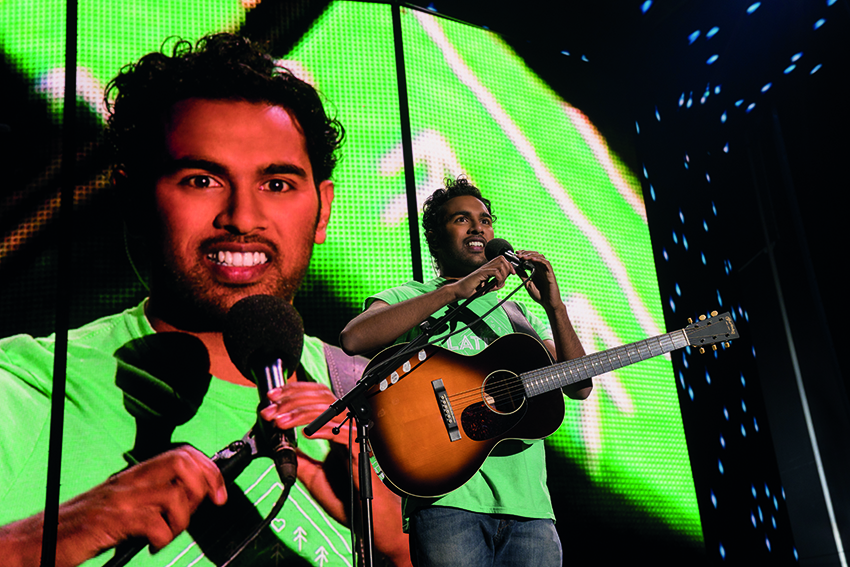
Yesterday
Directed by Danny Boyle
Produced by Tim Bevan, Eric Fellner, Bernie Bellew, Matthew James Wilkinson, Richard Curtis, Danny Boyle
Written by Richard Curtis
Story by Jack Barth, Richard Curtis
Starring Himesh Patel, Lily James, Kate McKinnon, Ed Sheeran
Music by Daniel Pemberton
Cinematography : Christopher Ross
Edited by Jon Harris
Production company : Working Title Films, Decibel Films
Distributed by Universal Pictures
Release date : 4 May 2019 (Tribeca), 28 June 2019 (United Kingdom)
Running time : 116 minutes
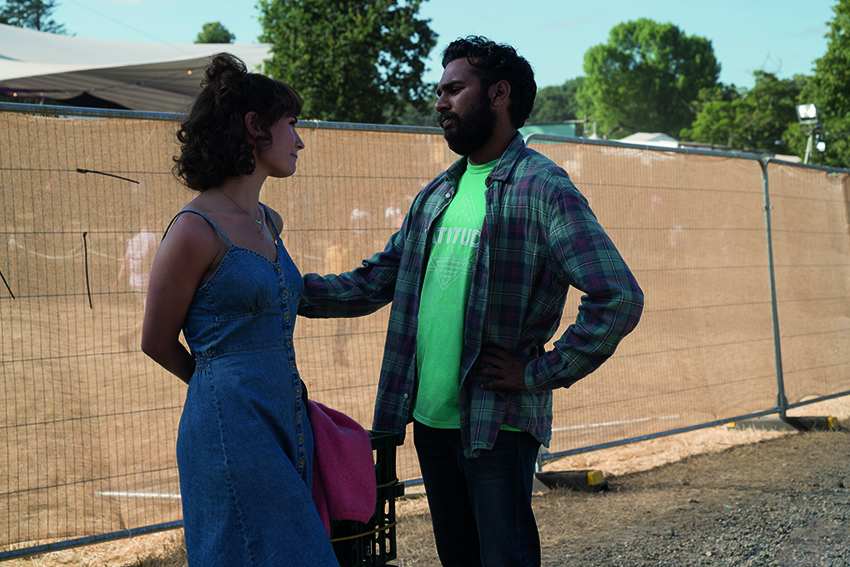
Photos and Video under copyright Universal Pictures for press purposes
(Source : press notes)


